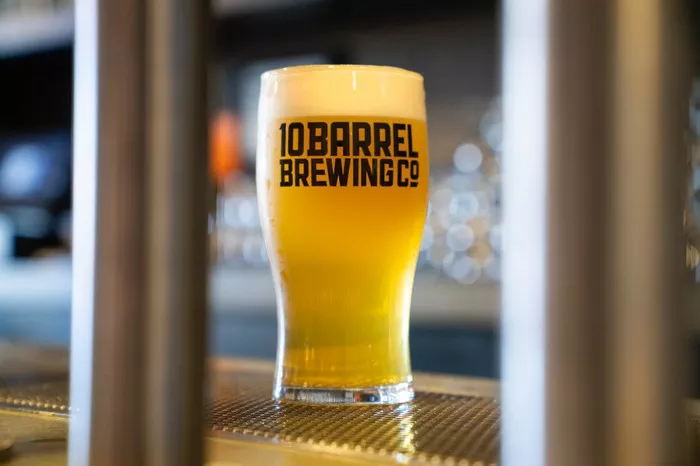Beer has long been a popular and cherished beverage worldwide, but it is often associated with alcohol consumption. However, there is a growing trend towards non-alcoholic beer, which offers the flavor and experience of beer without the alcohol content. In this comprehensive guide, we will delve into the world of non-alcoholic beer, exploring its health benefits, ingredients, production process, and its potential role in a balanced and healthy lifestyle.
1. Understanding Non-Alcoholic Beer
Non-alcoholic beer, often referred to as “NA beer,” is a type of beer that contains little to no alcohol. It is designed to mimic the taste and aroma of traditional beer while providing an alternative for those who wish to avoid or reduce their alcohol intake.
Low Alcohol Content: Non-alcoholic beers typically contain less than 0.5% alcohol by volume (ABV), a minimal amount that is unlikely to have intoxicating effects.
Ingredients: NA beer is made from the same basic ingredients as regular beer, including water, malted barley, hops, and yeast. The key difference is that the alcohol is removed or reduced to a trace amount during or after the fermentation process.
Flavor Profile: The flavor of non-alcoholic beer can range from malty and slightly bitter to hoppy and aromatic, depending on the brand and style.
2. The Health Benefits of Non-Alcoholic Beer
Non-alcoholic beer offers several potential health benefits, making it a popular choice for those seeking a balanced and healthy lifestyle.
Hydration: Non-alcoholic beer is primarily composed of water, making it a hydrating beverage. It can be a refreshing choice for staying properly hydrated, especially when compared to sugary soft drinks.
Low in Calories: NA beer is generally lower in calories compared to regular beer. This makes it a favorable option for individuals looking to manage their calorie intake and maintain a healthy weight.
Reduced Alcohol Intake: For those who want to avoid alcohol or reduce their alcohol consumption, non-alcoholic beer provides a satisfying alternative. It can be particularly helpful for individuals in recovery from alcohol addiction.
Rich in Nutrients: Non-alcoholic beer contains essential nutrients such as B vitamins, minerals, and antioxidants. These nutrients can contribute to overall well-being when consumed in moderation.
Improved Heart Health: Some studies suggest that moderate consumption of non-alcoholic beer may have a positive impact on heart health. It is linked to potential reductions in blood pressure and improvements in cholesterol levels.
3. The Production of Non-Alcoholic Beer
The production of non-alcoholic beer involves a specific process to remove or reduce the alcohol content while preserving the beer’s flavor and aroma.
Brewing Process: Non-alcoholic beer is brewed similarly to traditional beer, starting with malted barley and other grains. The brewing process includes mashing, boiling, and fermentation.
Alcohol Removal: After fermentation, the beer undergoes an alcohol removal process. This can be achieved through methods like vacuum distillation, reverse osmosis, or heating. These methods separate the alcohol from the beer while retaining its flavor.
Flavor Adjustment: Once the alcohol is removed or reduced, the beer may go through flavor adjustments to ensure it maintains the desired taste profile. This may involve adding hop extracts or malt extracts.
4. Types and Styles of Non-Alcoholic Beer
Non-alcoholic beer comes in various styles, offering a broad range of flavor profiles to suit different preferences.
Lager: Non-alcoholic lagers are the most common and widely available type. They tend to be light, crisp, and refreshing, making them a popular choice.
Wheat Beer: Wheat beers, whether alcoholic or non-alcoholic, are known for their smooth and slightly sweet taste. They often have a hazy appearance and a touch of citrus.
IPA (India Pale Ale): Non-alcoholic IPAs are known for their hoppy and aromatic qualities. While they may have a bitter edge, they still offer a rich flavor experience.
Stout: Non-alcoholic stouts can have a creamy texture with notes of coffee, chocolate, and roasted malt. They provide a full-bodied and satisfying taste.
Pilsner: Non-alcoholic pilsners are light, crisp, and have a clean finish. They are a go-to option for those who enjoy a classic and straightforward beer.
5. Comparing Non-Alcoholic Beer to Other Beverage Options
To understand the value of non-alcoholic beer, it’s helpful to compare it to other beverage options in terms of health benefits.
Soda and Sugary Drinks: Non-alcoholic beer is generally a healthier option than soda and sugary drinks, as it contains fewer calories and no added sugars.
Alcoholic Beer: For individuals who want to reduce their alcohol intake, non-alcoholic beer offers a satisfying alternative without the effects of alcohol.
Water: Non-alcoholic beer can be a flavorful and hydrating option, providing a change of pace from plain water while still keeping you well-hydrated.
Tea and Coffee: Non-alcoholic beer can be a refreshing alternative to tea and coffee when you’re looking for a non-caffeinated beverage with a unique flavor profile.
Conclusion
Non-alcoholic beer, with its minimal alcohol content and potential health benefits, is a valuable addition to a balanced and healthy lifestyle. It offers a flavorful alternative to traditional alcoholic beer, making it suitable for a wide range of individuals.


